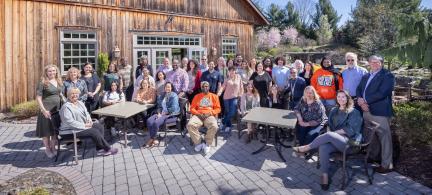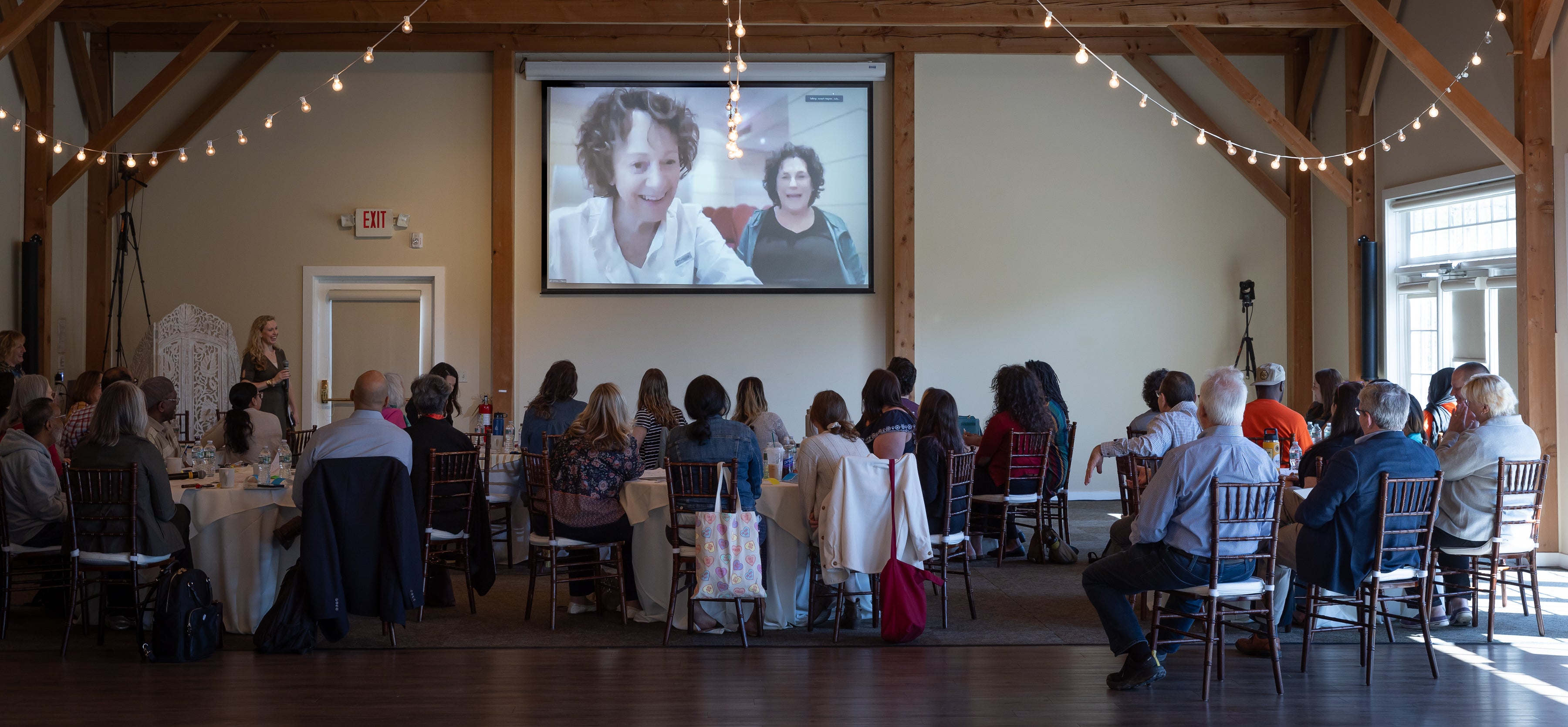
LVHN and LPPIH’s First Strategy for Supporting Community Well-Being: Integrated Community Therapy
The Pool Speaker Series highlights thought leaders in the health and community development fields and ties back to a unifying theme – health happens in communities. Communities and neighborhoods serve as our way of connecting with others and having a sense of belonging. At the same time, the growing need for mental health services is a current and ongoing national challenge as people feel more disconnected from one another.
While the struggle of mental health resources to meet increasing demand continues, we need to look for new and innovative solutions to developing a sense of belonging that will help decrease the number of people experiencing a mental health crisis. The Rippel Foundation and other national leaders have identified belonging and civic muscle as a core vital condition needed for communities to thrive.[1] The Prevention Institute (PI), a national nonprofit with a mission of building prevention and health equity into key policies and actions, also provides supporting evidence of the importance of our connection to others within the community. PI notes, “Building thriving communities helps foster mental health and well-being for everyone. When community members feel connected and have safe places to gather, and when they have access to affordable housing and good jobs, they experience less stress and anxiety. Conversely, exposure to repeated violence, displacement, and other traumas—or Adverse Community Experiences—undermines communities’ and individuals’ well-being.”[2] We need to look for opportunities to invest in approaches that will help revitalize the protective social fabric of communities.

To this end, one of the first strategies the Leonard Parker Pool Institute for Health, in partnership with Lehigh Valley Health Network (LVHN), is implementing to support community well-being is training local leaders in a model called Integrated Community Therapy (ICT). LVHN is the first health network in the United States to provide training in ICT to local professionals. ICT is a method of ‘solidarity care’ – a Collective Dialogic Practice that uses trained peer facilitators. It is intended to be a mental health promotion tool with the primary goal of building supportive and meaningful linkages and connections among individuals within a community. It uses guided conversation among members of a community to create a safe space for discussing solutions to everyday stressors and difficult life situations.
The core idea behind ICT is that individuals possess resources and capabilities that can be shared with one another. ICT ties emotional support to community engagement, creating the ability to cope and heal together through non-clinicians. The international practice creates a safe space to share life experiences and wisdom, whereas each participant becomes their own therapist. This is achieved through active listening to the life stories that are told, sharing in the responsibility of seeking solutions, and overcoming daily challenges in a warm, welcoming environment.
In May 2023, the Pool Institute for Health hosted Kenneth Thompson, MD, from Visible Hands Collaborative in Pittsburgh, and Adalberto Barreto, MD, PhD, for a Pool Speaker Series lecture. Barreto is the founder of the ICT model, originally developed in Brazil. Thompson, through the Visible Hands Collaborative, is actively working to translate the model from its Brazilian origins to the United States and implement the model domestically. In the initial visit to the Lehigh Valley, Barreto and Thompson co-led a lecture and discussion on ICT. Attendees also received the optional opportunity to participate in a demonstration round of ICT. “For a long time, we have been looking for some way to address the crisis that existed before the emergency that I think we’re in now,” said Thompson at the Pool Speaker Series. “There is also a real need in our society for people to overcome the social disconnection that we are experiencing.”
On Jan. 9, 2024, in a follow-up to the talk, LVHN and the Pool Institute for Health partnered with Visible Hands Collaborative to kick off training in ICT for local community organization leaders. Trainees received approximately 65 hours of training in the ICT model over three months (weekly training between January and April).
The training included 35 leaders from 17 Allentown-based organizations as well as JUST Listening from Philadelphia and The Wright Center from Scranton. Local organizations who participated in the initial installment of ICT trainings included United Way of the Greater Lehigh Valley, Ripple Community Inc., Valley Youth House, The Century Promise, Project Silk Lehigh Valley, Promise Neighborhoods of the Lehigh Valley, LVHN, Unidos, Lehigh Valley Suicide Prevention Coalition, Lehigh Valley Active Life, Community Bike Works, Allentown Health Bureau, Valley Health Partners, Change on Hamilton, and Lehigh County Department of Human Services. Next steps include supporting the trainees to implement the model locally so this resource can be available to local community members and exploring the option of additional training in the future.
The ICT model is a way to promote the well-being of the community as a whole and of the individuals living there by people helping each other address and manage daily stressors. It is a strategy for communities connecting and healing and highlights the need to foster and promote connectivity, sense of belonging and vibrancy within a neighborhood. When done in conjunction with broader change efforts to address housing, education and the physical space within a neighborhood, long-term improvements in health are possible. We are grateful for our collaboration with Visible Hands Collaborative and the involvement from multiple community partners to strengthen bonds and tackle potential upstream solutions regarding the local and national mental health crisis.
[1] The Rippel Foundation. (n.d.). Belonging and Civic Muscle. Belonging and Civic Muscle | The Rippel Foundation
[2] The Prevention Institute. (n.d.). Mental health and wellbeing. Mental Health & Wellbeing | Prevention Institute
